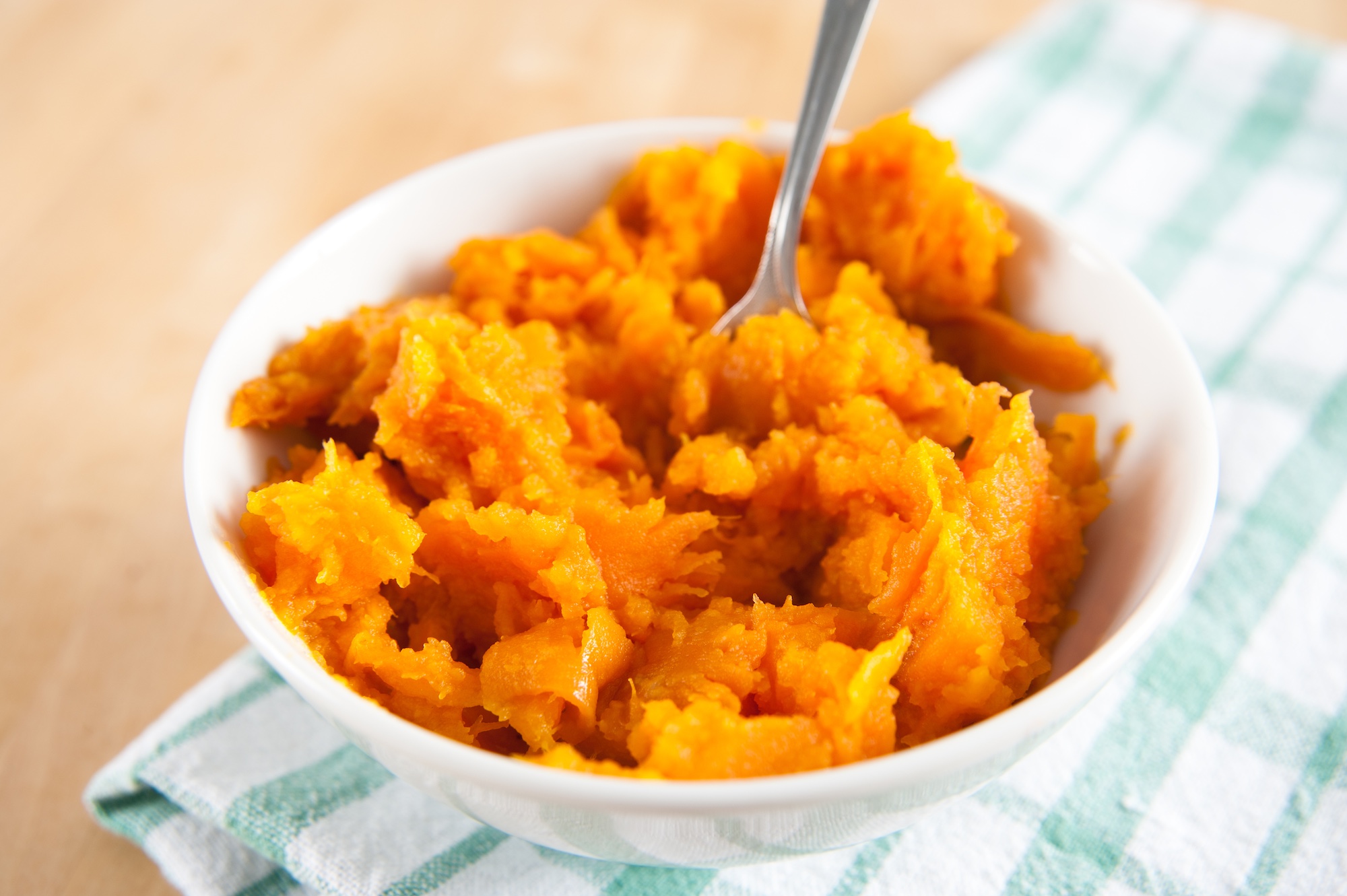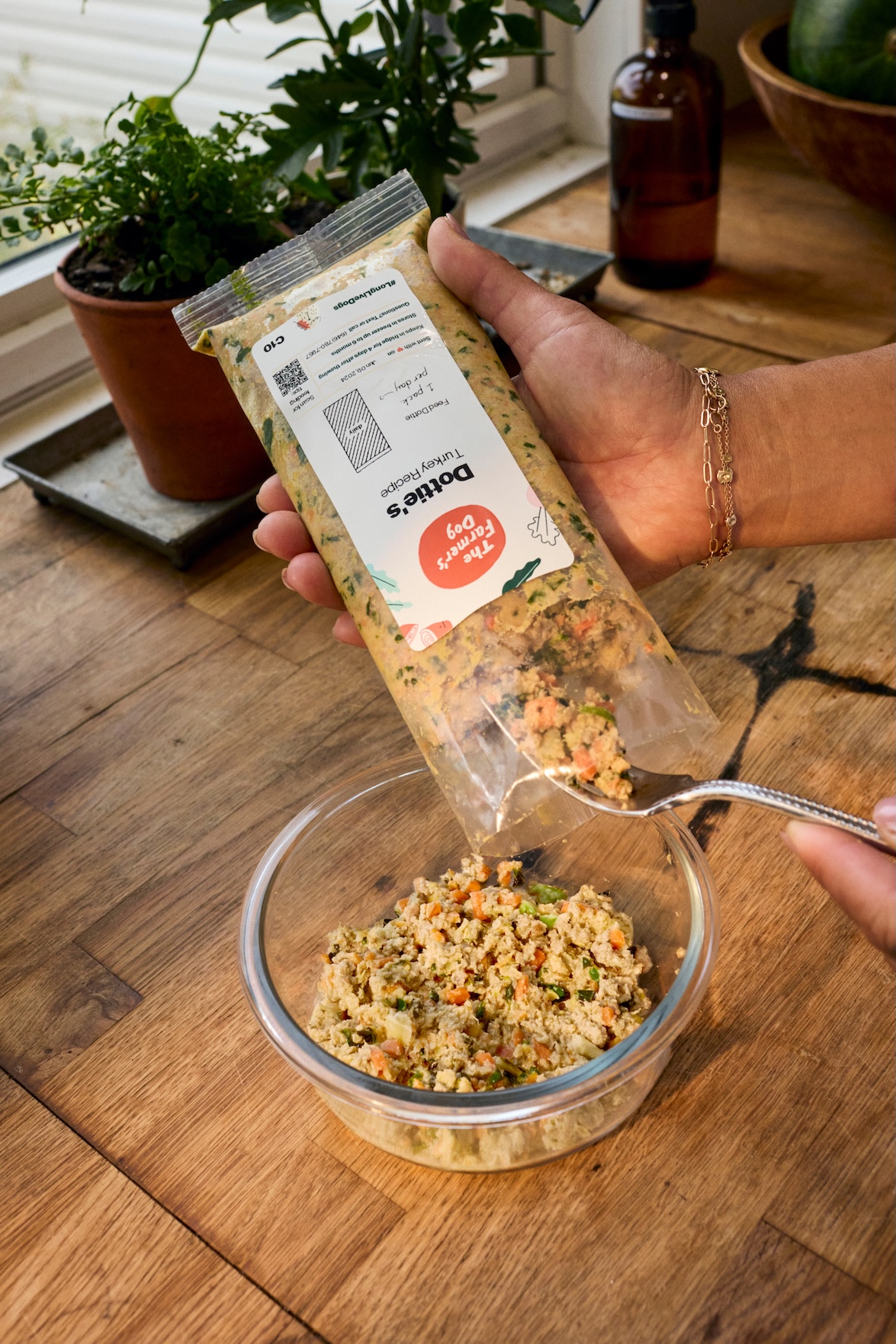Can dogs eat sweet potatoes? The short answer is yes—this nutrient-rich root vegetable is safe and healthy for most dogs. But, as with any other dog-safe food, it matters how you prepare sweet potatoes and how much you give your dog. Here are the details.
Key info about sweet potatoes
Sweet potatoes are nutritious tubers known for their copper color (though there are also yellow, purple, and cream-colored varieties). This holiday-table staple has a naturally sweet taste, is low in fat, and is packed with important nutrients.
Sweet potatoes are a great source of vitamins A, C, B3 and B6; and minerals such as potassium, calcium, manganese, and iron. These nutrients play a crucial role in supporting your dog’s immune system, maintaining healthy skin and coat, and promoting proper bone development.
Sweet potatoes are also high in beta-carotene, an antioxidant that can support immunity and eye health and fight inflammation. And they’re a fiber-rich food, containing both soluble and insoluble fiber. As is true for us, fiber helps dogs maintain good digestive health. Fiber can regulate your dog’s bowels, preventing both constipation and loose stools, and can help them feel full longer.
How should I feed my dog sweet potatoes?
When fed in the right form and the right amount, sweet potatoes can be a great addition to a dog’s diet.
They’re a common ingredient in dog food—including some of our recipes. Again, as a component of your dog’s daily diet, the key is how they’re prepared—our food is developed by board-certified nutritionists to be complete and balanced for dogs at all life stages, and our food is gently cooked to retain nutrients and moisture.
If you’re giving sweet potatoes as an extra, moderation is key: too much of any food can give a dog a stomach upset, and put them at risk of weight gain.
It’s fine to give your dog boiled, baked, or steamed sweet potatoes; just make sure they’re peeled, fully cooked, soft, and always served plain. Never feed your dog sweet potatoes (or any food) with added spices, sugars, or other additives like onions or garlic. This means you should avoid serving the sweet potato dish that’s part of your Thanksgiving feast—and avoid feeding fried sweet potatoes, whose added cooking oils and increased fat content could cause gastrointestinal discomfort.

You can cut sweet potatoes into small, bite-sized cubes, or mash them up with a fork—then mix them into your dog’s food as a meal topper or serve them as a treat.
Ask your vet about the right amount of sweet potato for your dog, and how often you can serve it. A simple guideline is to feed small dogs no more than a teaspoon of sweet potato at a time, and larger dogs a tablespoon or two.
Keep in mind the “10% rule”: any extra treats or snacks, however healthy, should make up no more than 10% of a dog’s daily calories. For reference, 50 grams (around a quarter-cup) of baked sweet potato, fed as flesh only with nothing added, has 45 calories.
What are the potential risks of giving dogs sweet potatoes?
While sweet potatoes are generally safe, in rare cases, some dogs may not tolerate them well. If you notice any signs of intolerance such as digestive upset, swelling, or itching, see your vet. Itchy dogs may constantly rub, lick, or chew their paws, legs, or other parts of their body.
If your dog has diabetes, check with your vet before giving them sweet potatoes as a treat. Dogs with diabetes should receive treats consistently, timed with their insulin injections, to help prevent unintended blood-sugar spikes. Sweet potatoes’ sugar content can vary a bit depending on how they’re cooked—more when they’re baked than when they’re boiled. It’s usually okay to feed a diabetic dog small, consistent amounts of sweet potatoes as treats, in addition to their complete and balanced daily diet—but your vet is the person who’s best qualified to offer specific guidance about what’s appropriate for your dog.
It’s worth repeating: Always make sure sweet potatoes are served cooked and unseasoned. Even though raw sweet potatoes are not considered toxic to dogs, they’re dense and difficult to chew. As such, they can be a choking hazard—and even cause an intestinal blockage, which is a medical emergency.
If you keep it safe, simple, and balanced, sweet potatoes can be a healthy part of your dog’s diet, or a sweet occasional treat.




